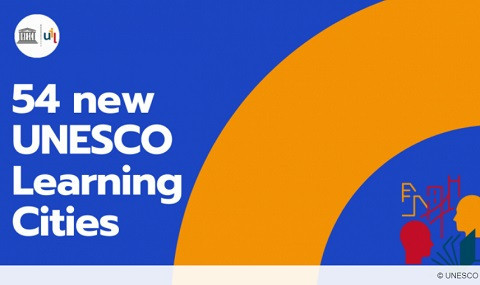
GCED Basic Search Form
Quick Search
You are here
News

23 September 2020, Hamburg. Today, 54 cities* from 27 countries will join the UNESCO Global Network of Learning Cities (GNLC). These cities are outstanding examples of how lifelong learning can become a reality at local level. They have proven that effective lifelong learning policies and practices can support the development of inclusive, safe, resilient and sustainable cities and contribute to the 2030 Agenda. Today’s new members bring the total number of cities within the UNESCO GNLC to 229 in 64 countries.
The UNESCO Institute for Lifelong Learning (UIL), as coordinator of the network, admitted the new members following their nomination by the National Commissions for UNESCO in the concerned countries. A strong commitment to lifelong learning by the mayor and city administration is a key prerequisite for becoming a learning city. As part of their application process, potential UNESCO GNLC members must demonstrate a clear vision for providing lifelong learning opportunities for everyone in the community. Once admitted, cities are expected to take part in the activities of the network and to produce a biennial report outlining their achievements as learning cities. The new member cities will be presented in an online event on 23 September 2020.
UIL Director David Atchoarena explains: ‘With unprecedented urgency, the COVID-19 pandemic has underlined the necessity to build more resilient education systems for the future. With more than half of humanity living in urban areas, cities must be at the centre of this undertaking.’
‘During the pandemic, UNESCO learning cities from around the world have shown that they are well placed to make lifelong learning a reality, also under harsh conditions,’ Mr Atchoarena continues. ‘I warmly welcome the new members of the UNESCO Global Network of Learning Cities and very much look forward to working with them on further advancing our goal of ensuring lifelong learning for all.’
Background
The UNESCO GNLC is an international policy-oriented network geared towards knowledge production and sharing, peer learning and capacity-building. UNESCO GNLC members benefit from sharing lifelong learning policies and practices with other cities in the network, developing and exchanging knowledge on key challenges and solutions, taking part in training initiatives, and participation in regional and global events. Within the framework of the strategy for 2019–2021, the activities of the network focus on seven key priorities: education for sustainable development; equity and inclusion; educational planning, monitoring and evaluation; education for global citizenship; entrepreneurship; learning for health and well-being; and literacy.
For further information, visit:
Website of the UNESCO Global Network of Learning Cities
Information about UNESCO learning cities’ responses to COVID-19
*Following a further review, one of the cities was removed from the list as it did not entirely fulfil all the required criteria. UIL apologizes for this oversight.
URL:
